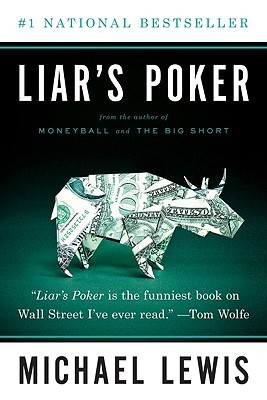
Boomerang: Travels in the New Third World
Book Description
Explore a world where economic collapse is a wild card and financial oddities reign supreme. Michael Lewis takes you on a riveting journey through the chaos of the global economy, where the aftermath of the 2008 financial crisis unfolds dramatically across countries like Greece, Ireland, and Iceland. Each destination reveals the bizarre and often tragic consequences of human folly and unrealized ambitions. With sharp wit and unflinching insight, Lewis exposes how our quest for prosperity sometimes leads to unexpected implosions. Are we destined to repeat our mistakes, or can we find redemption in our recklessness?
Quick Book Summary
In "Boomerang: Travels in the New Third World," Michael Lewis embarks on a globe-trotting investigation of the origins and fallout of the 2008 financial crisis. Through vivid reportage and interviews, Lewis explores how nations like Iceland, Greece, Ireland, Germany, and the United States became ensnared in financial chaos, each in their own unique way. He uncovers deeper cultural and psychological patterns that fueled reckless borrowing, speculative bubbles, and eventual collapse. Lewis’s sharp, humorous style turns complex economic concepts into relatable stories, weaving together tales of hubris, denial, and the seductive allure of easy credit. The book ultimately asks why individuals and societies repeatedly make the same financial mistakes and what these spectacular failures reveal about human nature and the global economy.
Summary of Key Ideas
Table of Contents
National Character and Financial Folly
Michael Lewis starts his journey with Iceland, a tiny fishing nation that tried to transform itself into a global financial powerhouse. Swayed by dreams of instant wealth, Icelandic bankers engaged in reckless lending, facilitated by their lack of experience and a culture emboldened by risk-taking. When the bubble burst, the entire banking system imploded, leaving the country bankrupt. Lewis’s portraits of Icelanders—a nation with outsized ambitions and limited financial understanding—illustrate how collective enthusiasm for speculation can fuel massive bubbles and dangerous overconfidence.
Psychology of Debt and Risk
The narrative shifts to Greece, where Lewis uncovers a society steeped in public corruption, tax evasion, and fiscal recklessness. Government overspending funded by foreign debt created a facade of prosperity that came crashing down during the crisis. Lewis delves into the mindset that allowed such practices to flourish, finding a populace deeply mistrustful of the state and unaccustomed to paying taxes. The Greek debt crisis becomes a parable about the perils of systemic dishonesty, weak institutions, and the social consequences of austerity and collapse.
Globalization of Economic Failure
Ireland, once the poster child for the Celtic Tiger boom, is examined next. Lewis reveals how a nation that prided itself on prudence abandoned caution in a frenzy of property speculation. Irish banks recklessly lent to fuel an unsustainable real estate bubble, confident that international lenders would keep the good times rolling. When the bubble burst, the government guaranteed bank debts—amplifying the crisis and saddling taxpayers with enormous liabilities. Lewis uses Ireland to explore how even conservative, self-disciplined societies can succumb to collective financial madness and groupthink.
Moral Hazard and Corruption
Examining Germany, Lewis finds a country that approaches finance with discipline, skepticism, and a rule-abiding mentality—yet still played a key role in the global bust. German banks, flush with savings, eagerly bought toxic assets from abroad, convinced they were immune to Anglo-American folly. Lewis highlights how Germany’s sense of superiority and trust in financial engineering blinded them to risks. The German story reveals how even the most stable economies can become entangled in the excesses of others through globalization and misplaced faith in financial systems.
Lessons from Collapse and Recovery
Finally, Lewis returns to the United States, drawing connections between the behaviors of these nations and American financial culture. He contends that the crisis was as much a product of human psychology—greed, denial, and a hunger for easy profits—as of institutional failures or technical missteps. Through sharp storytelling, Lewis underscores the global interconnectedness of financial systems, the moral hazards that thrive in boom times, and the recurring human tendency toward self-delusion. The book closes by questioning whether, having seen the boomerang effects of financial recklessness, societies can learn from past mistakes or are doomed to repeat them.
Download This Summary
Get a free PDF of this summary instantly — no email required.





